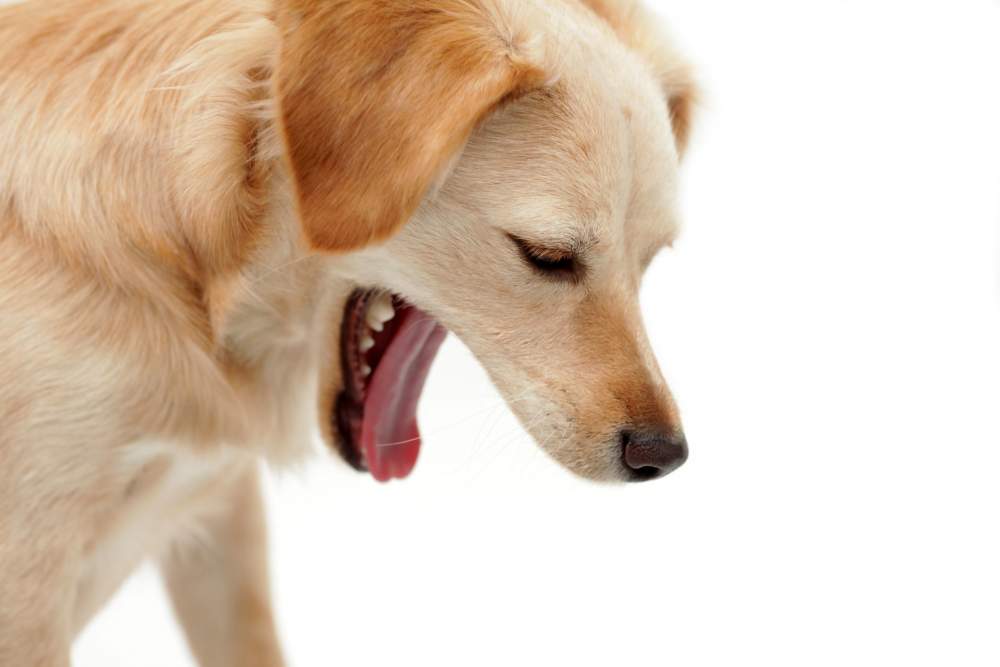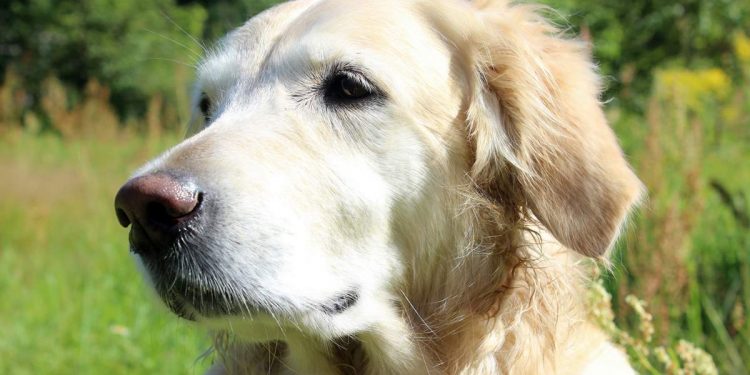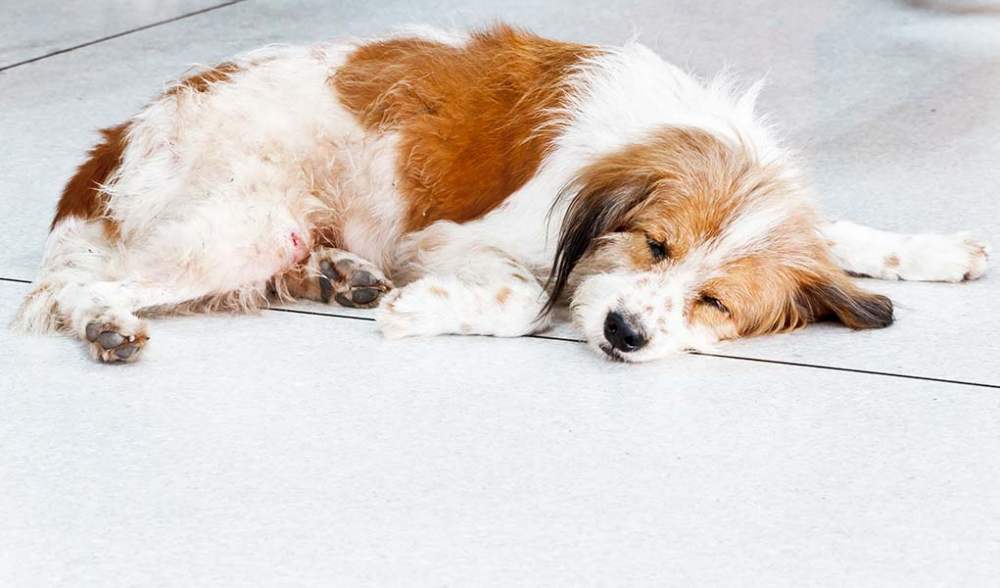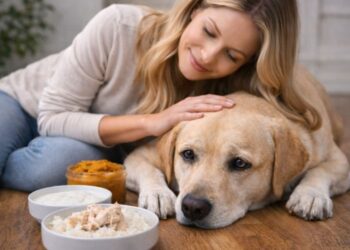You don’t have to be vet trained to guess that if your dog has diarrhea, it’s a sign of dysfunction. What seems essential to us is to know if the latter is temporary, or a precursor of a disorder linked to a more or less serious disease. Knowing them, we know that any good doggie who respects himself loves to do the trash or to taste what he finds in his path. So before we panic, if we took a look at the reasons that could have caused this state.
The most common causes of diarrhea in dogs
Viral digestive damage
One of the infections that affect dogs is parvovirus, which affects all canines such as wolves, foxes, etc. It is an extremely contagious virus that most often causes death. This pathology is called hemorrhagic gastroenteritis, which is why you should be alerted to what symptoms. The canine coronavirus survives relatively poorly in the outdoor environment, however, it can infect dogs at all ages. It is transmitted by the fecal-oral route, if in doubt avoid contact with other dogs to avoid contamination.
Bacterial infections
The greater the proliferation of bacteria, the less digestion of fat will be in your dog’s body. They are sometimes the consequence of an exocrine pancreatic insufficiency, which distorts their elimination or causes a digestive disorder inducing a stop of the transit. We often see this type of digestive reaction following the ingestion of food or something unfit for consumption.
Chronic intestinal diseases
Generally referred to as IBD, chronic inflammatory bowel disease causes digestive symptoms in animals such as vomiting and diarrhea. His digestive tract is almost permanently inflamed. If you are worried that your dog has it, know that this condition is mistakenly like Crohn’s disease. A diagnosis as early as possible will prevent him from suffering too frequently and will relieve his pain, which can be borderline sustainable. Farts often smell exceedingly bad. Also, check your dog’s breath! Does it have a very unpleasant or even rotten smell? In this case, take your dog to the vet as soon as possible. Only he can rule out chronic infection.
Food intolerances
Often allergic-type, these disorders are triggered on contact with food that contains the food to which your dog may be sensitive. Whenever his digestive tract comes into contact with the allergen, diarrhea will be the direct consequence. Generally, the proteins contained in beef, chicken, wheat, and other components found in its food are involved. Treatments exist to counter the harmful effects of allergens, but specially designed kibbles for this purpose are ideal! Often times you can protect your dog’s digestive tract naturally, he doesn’t always need medication!
Digestive parasites & Co
Giardiasis or worms induce generally random diarrhea or even vomiting. Only blood and/or stool analysis can establish a diagnosis, by taking samples for three consecutive days.
These pathologies must be the subject of an emergency consultation, some of which may require surgical intervention.

Examinations recommended in the event of diarrhea in your dog
If the liquid stool episodes are accompanied by blood or have an unusual color, a visit to the veterinarian is necessary. Besides evaluating your dog’s state of health, only he will be able to determine the origins of his gastroenteritis. Often, additional research will not be necessary to make the diagnosis, but this is not always the case.
Simple clinical examination
If your dog has a stomach ache, distended abdomen, or/and is showing hard, your vet can pinpoint the cause on palpation. This is not always the case, but sometimes it is enough to make him detect a thickening of the loops of the intestine or the foreign bodies which would have been lodged there. As a precaution, the veterinarian will prescribe some additional examinations, but treatment to thicken the stools and regulate their frequency is generally sufficient.
Examination of stool
This is a fairly widespread practice, especially when the feces are soft to liquid and tinted with ocher, green or black. This diarrhea is usually irritating, your dog has a raw anus and he licks it to ease the pain. An easy, quick and inexpensive examination is then considered, which is called colposcopy. All its interest lies in its effectiveness as a screening or diagnostic tool. However, we generally prefer other more relevant examinations.
X-ray examination
Each of these organic disorders will thus be diagnosed, such as the presence of parasites or antibodies against viruses.
Reading suggestions: Happy Dog Food Review and Recommendations for 2021
Treatments and precautions to take when your dog has diarrhea
The very first remedies
When in doubt, a phase of fasting is better than the risks that may arise from an underlying disease developing.
Feed it back little by little
If the diet has not caused discomfort in the general condition of your dog, a resumption of food will then be considered but respecting a certain logic. You can provide it with a hyper-digestible diet in the form of croquettes, by adding well-cooked rice and even white meat. A digestive bandage such as Smectite (rather than Smecta, whose effectiveness remains to be proven), can be an advantage after a period of the diet. Administer the product to him fifteen minutes before the meal.
Avoid certain foods
Except for what your pet has the annoying habit of swallowing without asking your opinion, as trash cans can be so attractive, some habits are bad. So it is better to opt for drastic rules, on the condition that they are distilled as it evolves. If your dog has a habit of eating badly and anything, give his stomach time to get used to the change. Chew bones are not the top food, a rubber toy will do just as well, and avoid giving it your leftover meals. However, if your dog is very fond of snacking, treat your sweetheart to special snacks that don’t hurt him and on the contrary, are beneficial for his health.
These treatments are only valid when the vital prognosis of your charming companion is not engaged … that goes without saying!
Cases where hospitalization is to be considered urgently
When it comes to a puppy
The younger he is, the less resistant your dog will be to the disease and the more impact it has on his energy. If despite the usual precautions, his stool remains liquid, your veterinarian may prescribe antibiotics and/or antispasmodics. He will judge according to the results of the examinations. Anyway, hospitalization should be considered as a precaution, whether the diarrhea of this youngster is due to a specific disease or not.
When your dog is old
As young dogs, it offers less disease resistance, is easily apathetic and the resulting pathologies are more serious. We are often faced with a multi-organ failure, which in some cases heals quite well if taken in time. In this case, the attack gives rise to vomiting, associated with significant fatigue. Your dog sometimes breathes with difficulty, makes a noise when swallowing, has a fever, and does not eat much or little. Rehydrate it by infusion is then imperative, especially since drugs can be added. Even if you cannot cure his illness on your own, being at the vet may reassure your dog.
Hemorrhagic diarrhea
This is often the case in severe gastroenteritis, the stools are bloody and an infusion is necessary for rehydration. More specific liquids are sometimes to be swallowed and, depending on the disease, its severity and its origins, a week of hospitalization may be considered. In any case, remember to keep your dog’s vaccination up to date and treat him with dewormer. More than anything, pay attention to his diet which, if it is unbalanced, is often the cause of many stomach problems.
Be that as it may, never take lightly this inconvenience which has the annoying habit of hiding more or less serious pathologies. Again and again, the precautionary principle, following the previous adage of “prevention is better than cure. We cannot repeat enough that a good diet is the most effective remedy against any pathology. So dry food has many advantages, it is much more digestible and adapted to the good balance of your dog. It comes in many forms, meeting an infinite number of nutritional needs.









